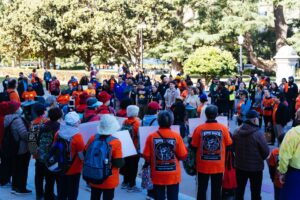 On April 30, our Policy and Advocacy team gathered in-person with the California Hunger Action Coalition (CHAC) in Sacramento to raise their voices for Hunger Action Day! Hunger Action Day is the single largest anti-hunger advocacy day in California, bringing advocates from across the state to the State Capitol to speak face-to-face with our policymakers.
On April 30, our Policy and Advocacy team gathered in-person with the California Hunger Action Coalition (CHAC) in Sacramento to raise their voices for Hunger Action Day! Hunger Action Day is the single largest anti-hunger advocacy day in California, bringing advocates from across the state to the State Capitol to speak face-to-face with our policymakers.
Associate Director of Policy and Advocacy Marchon, Community Organizer Alex, and Community Builder Jesus all traveled to Sacramento to represent the Food Bank. After an energetic pep rally outside of the Capitol, where we saw neighbors from partner organizations like Tenderloin Neighborhood Development Corporation (TNDC) representing their communities, advocates got down to business.
Key Demands
This year, we lobbied in coalition for some key funding requests: 
- Increased CalFresh benefits for Californians
- Continued funding for Market Match, which gives CalFresh recipients $10-$15 extra dollars at farmer’s markets
- $60 million for food banks to purchase California-grown produce and pantry staples
- Increasing Supplemental Security Income (SSI) to keep pace with the cost of living
- …and many others!
Together other CHAC members, Marchon, Alex and Jesus shared directly with our elected officials how dwindling government support is affecting our neighbors already struggling with the high cost of living in the Bay Area and stretching food bank resources thin – emphasizing the need to double down on and invest in proven anti-hunger solutions like CalFresh.
Staff Takeaways
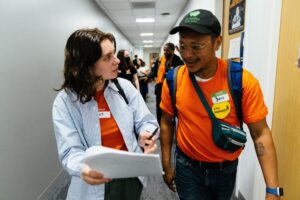 Reflecting on a jam-packed day of collaboration, Food Bank staff came away feeling energized to continue pushing for impactful, equitable policy.
Reflecting on a jam-packed day of collaboration, Food Bank staff came away feeling energized to continue pushing for impactful, equitable policy.
On being able to build community with other advocates, Jesus shared: “We’re able to see how interconnected all our efforts are and advocate for CalFresh, Food for All and increased funding for food banks. All of our collective efforts have an impact on our communities.”
“It was amazing to hear everyone’s stories, and the way that they are affected and connected to the policies,” Alex added, speaking to neighbors who showed up to drive home the personal aspect of these policy and funding asks. “I hope that people feel empowered to vote positively for these measures, and that legislators are empowered by our stories.”
One such neighbor was Ms. Liu, who showed up to advocate for fully funding Market Match – a program that helps match CalFresh shoppers’ dollars at farmer’s markets, giving an extra $10-$15 to spend on farm-fresh fruits and vegetables.
Personal Stories, Passionate Advocates
Ms. Liu is a San Francisco resident, Home-Delivered Groceries participant, and an active member of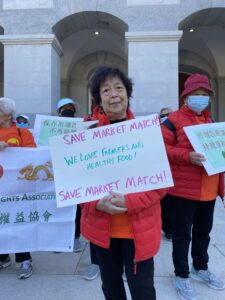 TNDC’s Tenderloin Chinese Rights Association.
TNDC’s Tenderloin Chinese Rights Association.
She spoke passionately about Market Match’s impact on her family, telling staff of our elected officials: “My husband and I are both chronically ill, and it’s vital that we have access to fresh produce. With the closures of many Tenderloin corner stores, we highly depend on the benefits of the Market Match for fresh food within our means.”
Since the end of CalFresh emergency allotments, Ms. Liu’s health has declined – but even that couldn’t stop her from traveling to the Capitol to advocate for better CalFresh benefits. 
“I showed up today because it is imperative that they see that we are the people who are struggling,” Ms. Liu told us, gesturing to her friends and neighbors who also came to advocate. “We are elders, and many of us are chronically ill with mobility issues. We need more sustainable resources that work for us.”
Moving the Needle on Hunger
Thank you to all the advocates, including Ms. Liu, who spoke truth to power about the resources and support our communities need. Everyone has a right to nourishment and the ability to thrive – and our Policy and Advocacy team will continue pushing for equitable policies that uplift and support our neighbors while addressing the root causes of hunger.
In Marchon’s words: “Can’t wait to see what we continue to do to move the needle forward!”
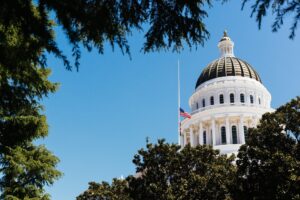
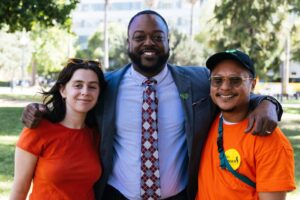



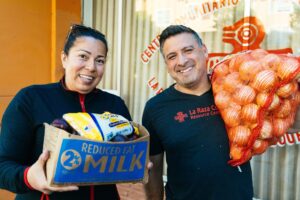
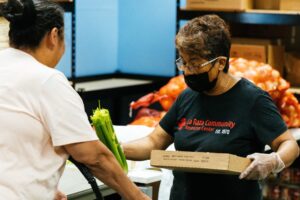
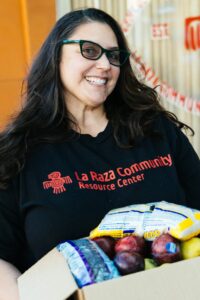
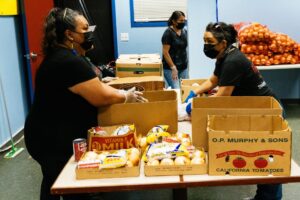
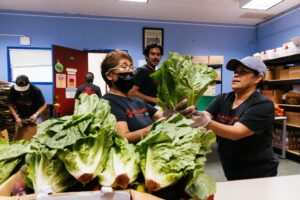
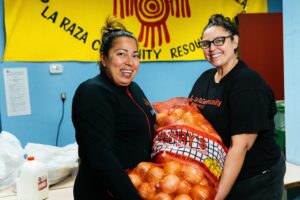
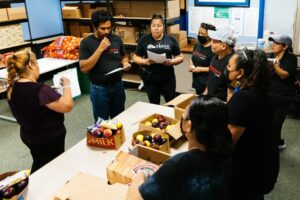

Share